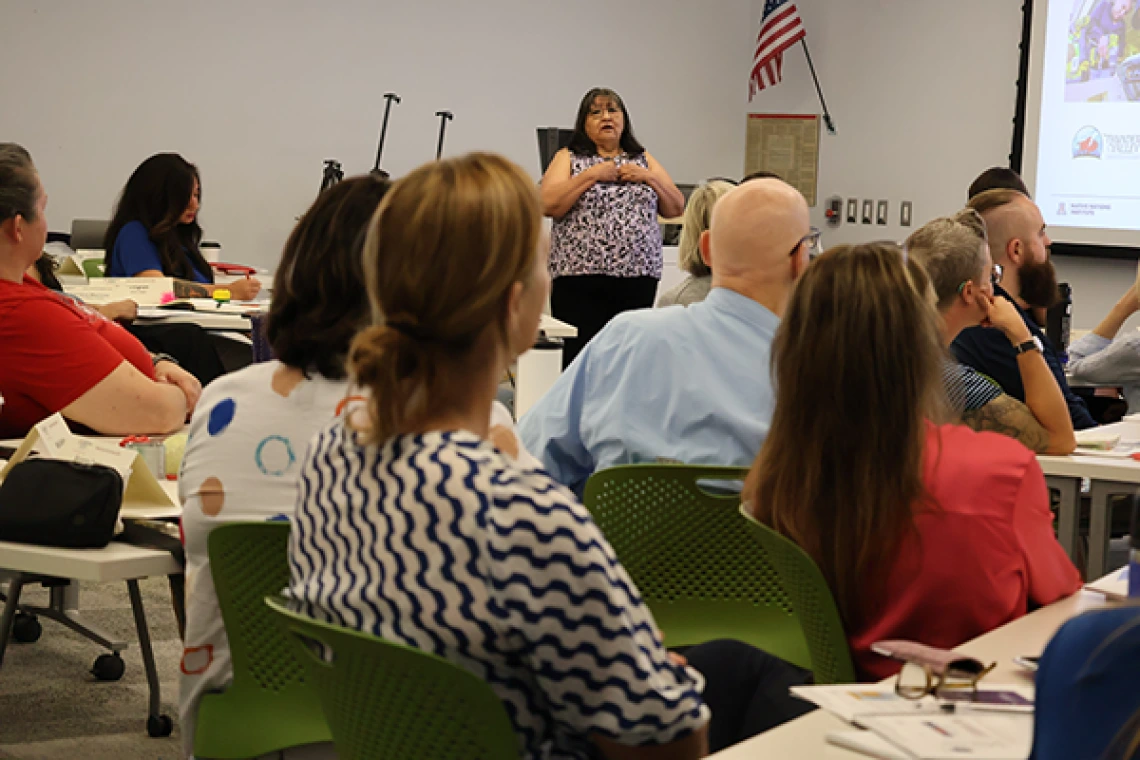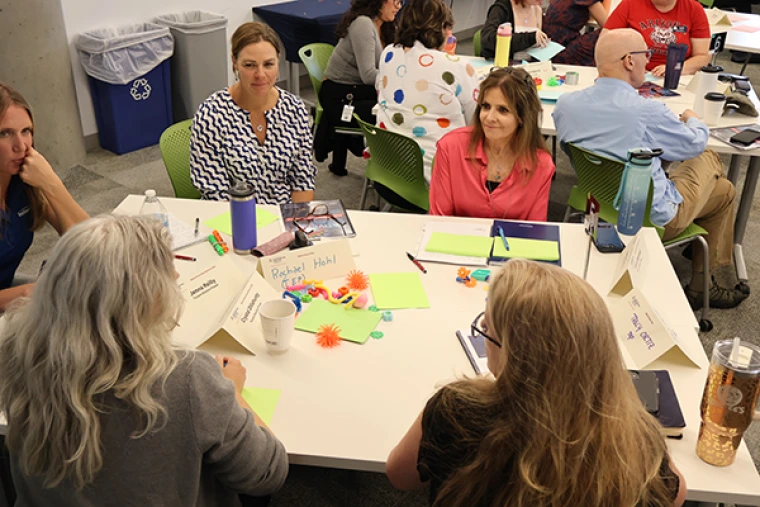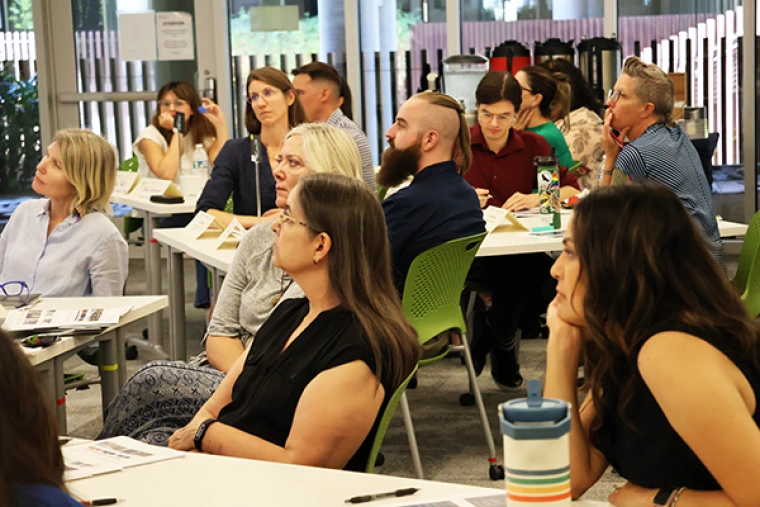Native Nations Institute Teaches 'Native Know-How' to Non-Native Professionals
Dozens of individuals from nonprofit, public, and private institutions attended the 2025 Native Know-How Seminar to learn how to better partner with Indigenous Peoples.

Originally launched in 2016, the Native Nations Institute’s (NNI) hybrid Native Know-How (NKH) seminar is an annual educational event designed to bring resources, insights, and perspectives from researchers and members of Native nations throughout the United States to non-Native individuals and organizations working directly with or intending to work with Native nations and Indigenous Peoples.
The intention of the program is to expand the capacity for non-Native professionals to dispel any preconceived notions about Indigenous Peoples they might have while also providing background on the process for working with Native nations in ways that are mutually beneficial.
This year’s August 5th event was held at the University of Arizona’s award-winning Environment & Natural Resources 2 building and online. In total, 44 individuals attended, including representatives of such organizations as:
The University of Arizona
The Arizona Board of Regents
Tucson Electric Power (TEP)
Wise Ancestors
Western National Parks Association
Northern Arizona University
Community Foundation for Southern Arizona
Arizona Department of Health Services
Meeting Tribes “Where They Are”

A classroom filled nearly to capacity listened in as NNI Executive Director Joan Timeche (Hopi), NNI Tribal & Direct Services Manager Naomi Tom (Tohono O’odham), and NNI Tribal & Direct Services Outreach Specialist Kevin Fortuin provided summary insights on the formation of Tribal-U.S. relationships, current intergovernmental relations, an overview on significant cultural differences and government structures, and dispelling of stereotypes that are harmful to Indigenous Peoples. This was the last NKH seminar presented by Timeche, who will retire at the end of the year, and Tom, who recently accepted a director-level position at another Arizona university.
“The more that we’re culturally aware, the better we can meet tribes where they’re at,” says TEP Land Manager Rachel Hohl. She further noted how crucial mutual understanding and cultural sensitivity are for strong working relationships with tribes, especially since TEP infrastructure often crosses through Tribal lands.
Working with Native nations requires a unique understanding of the culture and governmental processes of the nation or nations in question. And, as regulations change and infrastructure expands, learning how to properly engage Native nations as independent and solitary entities rather than as single components of a cultural monolith builds understanding and enables cooperative working relationships to develop.
“We’re facilitating greater awareness and being good neighbors by learning about what each other is doing,” Timeche says. “That way we can better address common concerns and challenges.” She says that not all non-Native organizations take the time and employ the steps necessary to engage with Native nations properly, which results in lost trust, soured relations, and stalled projects. The NKH seminar, Timeche says, “… is a great reminder for folks that we [Indigenous peoples] are still here and they still have to work with us.”
Who’s Responsible for Relationship Building?

As so-called “domestic dependent nations,” Native nations do not exist in a silo. Research, infrastructure projects, and services are constantly being executed in and around Native lands, though such efforts do not always have the best interests of the Indigenous Peoples they impact in mind. Still, it’s the responsibility of the groups managing projects on or near Native lands to engage with each impacted Native nation on terms defined by that nation.
“It was helpful to understand that there are differences that need to be understood when engaging a tribe,” noted one participant on an anonymous feedback survey.
Over the last ten years, the NKH seminar has become the place to go for the preliminary knowledge necessary to create lasting and mutually beneficial relationships with Indigenous Peoples.
NNI’s Tribal and Direct Services team is also constantly gathering new information to improve their seminars. So, even if you and your organization have taken part in a similar NNI seminar in the past, the opportunity to expand your understanding in this area remains.
We are immensely grateful for all who participated in our 2025 Native Know-How seminar. Your involvement directly contributes to the expanding recognition of Indigenous knowledges, cultures, and sovereignty. We look forward to seeing new and familiar faces for NKH 2026!

